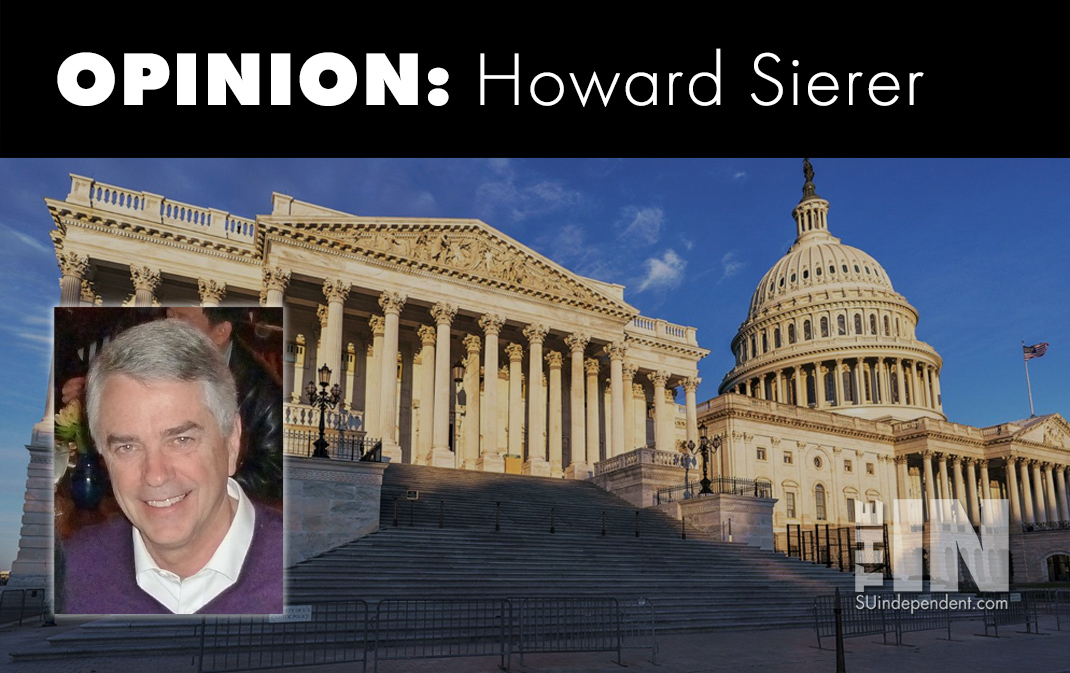
The Emerging Multiethnic Republican Majority
– By Howard Sierer –
At the core of Democrats’ fixation on identity politics is their confidence that as racial and ethnic minorities become an ever-increasing fraction of the population, these identity groups will continue to vote for Democrats. Party leaders have been sure the leftward march of their policies would be embraced by these minorities. As the saying goes, “demographics are destiny.”
It turns out that putting people in identity group cubbyholes, telling them they’re oppressed victims of the white majority and taking their votes for granted is looking shakier and shakier as a political strategy. These “victims” have minds of their own.
It’s certainly true that racial and ethnic minorities still tend to vote for Democrats, but it’s getting harder every year to take that for granted. Exhibit One: The liberal Washington Post called Donald Trump “the most racist president in modern history.” Yet greater percentages of blacks, Hispanics and Asians voted for Trump in 2020 than they did in 2016, contrary to the Post’s or Democrats’ expectations.
California voters shocked the identity-politics crowd a second time in 2020. Back in 1996, California became the first state to eliminate affirmative action – favoring women and minorities in awarding state contracts – when 55% of voters passed Proposition 209.
Hoping to re-establish affirmative action, in 2020 California’s ultra-liberal legislature sponsored Proposition 16 to reverse the ban and backed it with a $31 million advertising campaign. Despite the fact that opponents spent only $1.6 million, Prop. 16 failed by an even larger margin: 57% were against repeal.
Claremont Review of Books senior editor William Voegeli summarized what happened in a recent essay. He explained that even though state diversity increased over the 24-year interval, support for affirmative action decreased. Analyzing public opinion surveys before and after the 2020 election, Voegeli concluded that “Prop. 16 lost because of non-white voters.”
The nationwide shift toward Republicans is most pronounced among Hispanic voters. An ALG Research poll conducted for the Wall Street Journal in November 2021 showed that Hispanics are about evenly split between Republicans and Democrats. Evidence: in winning the Virginia governorship in 2021, Republican Glenn Youngkin garnered 55% of the Hispanic vote.
Donald Trump gained seven percentage points with Asian voters in 2020 compared to his 2016 results. Even better news for Republicans: a Politico survey found that Asians view Republicans in Congress much more favorably than they view Trump.
As elite progressive institutions like Harvard continue to discriminate against Asians by scrapping standardized tests (a move that hurts Asians) and downgrading Asian applicants on subjective personality criteria, support for Republicans is likely to increase.
Compared with 2016, Trump received an increasing percentage of black votes, improving from 13% to 19% of black men and from 5% to 10% of black women. Nonetheless, African-Americans as a group remain heavily Democratic. Social scientists offer several suggestions as to why.
Brennan Center for Justice Senior Fellow Theodore R. Johnson observes: “Most black voters view a Democratic vote as a heuristic for supporting strong federal civil rights protections and support for a Republican presidential candidate as a vote against group well-being.”
Niskanen Center researchers Ismail White and Chryl Laird found that blacks, especially those living in segregated social networks, feel significant social pressure to vote for Democrats. As evidence, they noted that when a survey interviewer was black, respondents exhibited twice the level of partisanship compared to when the interviewer was white.
Nonetheless, Republicans see hopeful signs of change among African-Americans. Many blacks see themselves as conservatives and support conservative policy positions. Eighty-four percent believe spending on public safety should increase. Fifty-one percent oppose preferential treatment in hiring decisions. Even welfare spending tells a similar story: black respondents are about evenly split (31% to 28%) on whether spending should increase or decrease.
These emerging social trends show that demographics are not destiny. By continuing to focus on values, Republicans can show voters that their race or ethnicity is not their most important characteristic. Republican values that put charter schools ahead of teachers’ unions, that put victims ahead of criminals, and that re-enshrine equal opportunity are principles that resonate with all Americans.
Viewpoints and perspectives expressed throughout The Independent are those of the individual contributors. They do not necessarily reflect those held by the staff of The Independent or our advertising sponsors. Your comments, rebuttals, and contributions are welcome in accordance with our Terms of Service. Please be respectful and abide by our Community Rules. If you have privacy concerns you can view our Privacy Policy here. Thank you!
Click here to submit an article, guest opinion piece, or a Letter to the Editor




